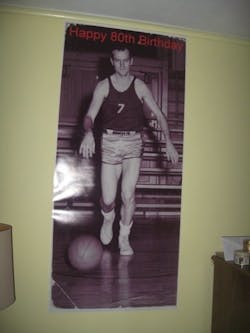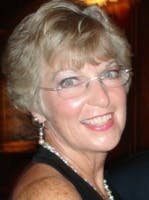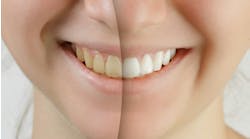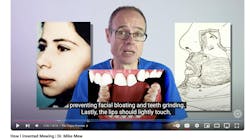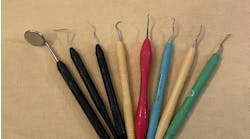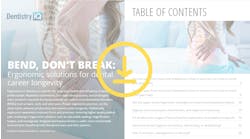My Dad’s life, once filled with his dedication to family, his 40-year career at IBM, and his active participation in basketball, softball and other sporting events is now riddled with confusion by the plaques and tangles of Alzheimer’s disease in his brain. He struggles to find the correct word to communicate with others. He can’t sign his name unless he copies it from his personal ID card. He becomes surly and belligerent at the drop of a hat. My Mom used to love to talk about her career in banking where she started as a teller and climbed the ladder to become an Assistant Vice President. Now she can’t even manage her checkbook. She still struggles to attend her Jazzercise class. She stands in a corner of the gym and uses very limited movements. At one point in time, she thrived with the beat of the music and the hip hop of the dance steps. After her class, she comes home and scribbles her attempted answers of the newspaper crossword puzzle. In spite of her lifelong dedication to physical and mental exercise, she is afflicted with vascular dementia caused by carotid stenosis and transient ischemic attacks. Dementia is rapidly becoming a major health threat in the United States. We, as a population, are living longer. However, it is not just a disease of the elderly. College basketball coach Pat Summitt has been diagnosed with early onset dementia at the age of 59. Although her diagnosis has raised awareness of this terrible disease, one cannot avoid feeling helpless in this heartbreaking situation. One cannot avoid the reality that there is no one among us who is immune to it.
www.alz.org is the web site of the Alzheimer’s Association. There you can find an abundance of information about Alzheimer’s disease and other forms of dementia, along with opportunities to donate, share your thoughts and become an advocate. At this point in time, Alzheimer’s disease is the sixth leading cause of death in the United States, and the only cause in the top 10 without a way to prevent, cure, or slow its progression. I find hope in the National Alzheimer’s Project Act (NAPA) (Public Law 111-375), which requires the formation of a plan to address the accelerating crisis of Alzheimer’s Disease in the United States and coordinate such efforts across the federal government. Maybe someday we will have some answers. Maybe someday we will see the kinds of advancements that have increased survival rates of heart disease and many types of cancer. Maybe someday dementia and other forms of mental illness will no longer be accompanied by the stigma of shame and guilt that has been fueled by public misunderstanding. My parents are indeed the faces of dementia. I hope that I may, on some level, be a voice in the fight against dementia. As dental hygienists, we are afforded the gift of human contact. It is a very important role of our profession. Let us all remember that our patients with dementia are still people who have lived active and fulfilling lives. I think there is still so much that we can learn from each and every one of them, even if it is only because of an opportunity to learn more about the disease itself. That dementia patient whose personal and oral hygiene now leaves much to be desired, was probably once a career person with an appearance as “neat as a pin.“ The patient who can’t effectively answer your questions or seems to be speaking their own language because nothing they say makes any sense, may have been a great storyteller at their family gatherings or a onetime “social butterfly.” You just don’t know. When you try to speak with that patient and you almost literally see the information “going in one ear and out the other,” it is not their fault. No one would willingly choose to have what appears to be a blank slate of their mind. When they become obstinate and cranky, realize that it is not them, but the disease itself that exhibits this behavior as one of its symptoms. When you see the caregiver, quite possibly a family member, who has transported this patient to their appointment, please realize that their life is not easy either. Family members of those afflicted with dementia are victims themselves. Personally, I can tell you that my heart breaks a little more with each passing day. Yet I will hang on to these days and cherish them. They are still the days when I have my parents alive in this world.Most importantly, I want to speak not just as a dental hygienist, not just as the daughter of Tom and Jane Murphy, but as a human being. There is no one among us who is really that different from any other person. We all have strengths and weaknesses. These strongholds and frailties are just exhibited in different ways throughout our lives. Every single one of us was once a child. No one was born old. No one was born with dementia. Every one once had skills, goals, hopes and dreams.


